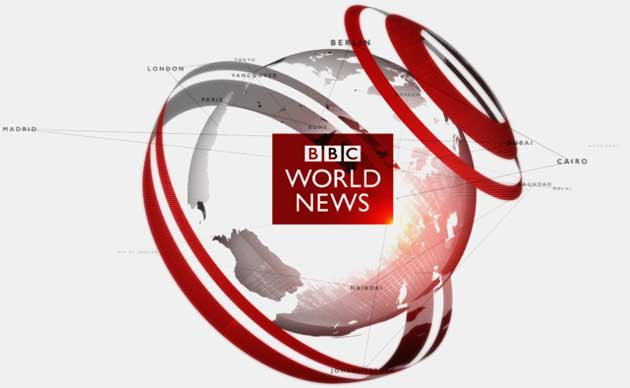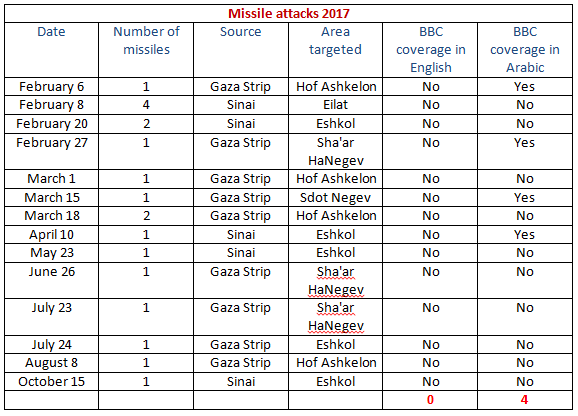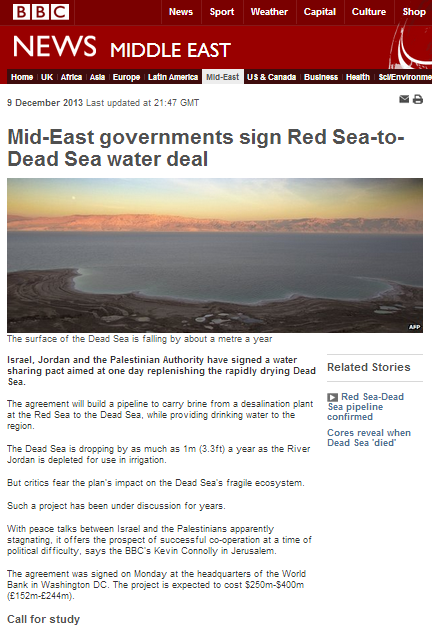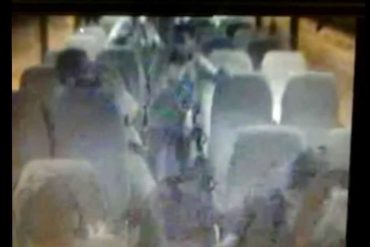The November 1st afternoon edition of the BBC World Service radio programme ‘Newshour‘ included an item (from 19:18 here) described by presenter Razia Iqbal as follows:
Iqbal: “Let’s stay with Palestinian issues now and specifically Gaza, which has been controlled for the last decade by the Islamist group Hamas. Now Hamas has begun handing control of the border crossings with Egypt and Israel back to the Palestinian Authority which controls the rest of Palestinian territory. This is part of a reconciliation deal negotiated in Cairo last month between Hamas and Fatah, which dominates the Palestinian Authority. I’ve been finding out more from our correspondent in Jerusalem Tom Bateman.”
Tom Bateman began by describing the ceremony at Rafah crossing on that day, then telling listeners that:
Bateman: “However, that crossing remains effectively completely closed and at the crossings with Egypt [sic – he apparently meant Israel] the very heavy restrictions remain in place. However, what has happened there is the dismantlement of the Hamas checkpoints there so when you cross between Israel and Gaza there is the Israeli side – the security there – and also the Hamas checkpoint. But the two sides obviously do not talk to each other so there’s always been a small PA checkpoint in between them. Now that checkpoint becomes the main checkpoint for the Palestinian Authority.”
In his response to a question from Iqbal about how the lives of people in Gaza are expected to change because of this hand-over of control of the Palestinian side of crossings from Hamas to the PA, Bateman suggested that it might lead to changes in Israeli policy.
Bateman: “But of course over time there is some hope that perhaps it may see restrictions eased and then of course that blockade on the Gaza Strip perhaps begin in some way to lift. Time will tell.”
What Bateman described as “that blockade” is of course restriction on the import to Gaza of weapons and dual-use goods that was introduced after Hamas’ violent coup in the Gaza Strip due to the need to protect Israeli citizens from Hamas terrorism.
The trouble is that nowhere in this report did either Bateman or Iqbal clarify to listeners that Hamas is a designated terror organisation that is very frank about its persistent aim to destroy the Jewish state by means of violence. Even when Bateman briefly touched on the topic of Hamas disarmament at the end of the item, he failed to inform listeners that since the announcement of the ‘reconciliation deal’ between Fatah and Hamas, various officials from the terror group have repeatedly clarified that no such step will be taken.
Bateman: “But over time the very big stumbling block – and what’s been the big problem in the past – is over the control of weapons; over Hamas’ armed wing…ah…with the Palestinian Authority president Mahmoud Abbas saying, you know, there will be one law, one authority and one gun. But of course many people doubt whether full disarmament, you know, will take place.”
Neither did Bateman bother to explain to listeners that the failure to disarm Hamas will put the Palestinian Authority in breach of both its existing agreements with Israel and the Quartet Principles.
Since the story of Hamas-Fatah reconciliation first broke in mid-September, none of the BBC’s numerous reports concerning that topic have provided its audiences with a proper explanation of why Hamas must be disarmed if the PA is to meet its existing obligations. Neither have any of those reports on a variety of BBC platforms included coverage of statements by Hamas officials clarifying the terror group’s refusal to disarm its militias and its intention to continue attacks against Israel.
As this latest report by Bateman once again indicates, the BBC’s failure to provide its funding public with the full range of information needed to properly understand this story is obviously not a matter of chance omission but of deliberate framing.
Related articles:
BBC News continues to conceal Hamas refusals to disarm
BBC adds superfluous punctuation to US and Israeli statements on Hamas
BBC News continues to mislead on Gaza electricity crisis




